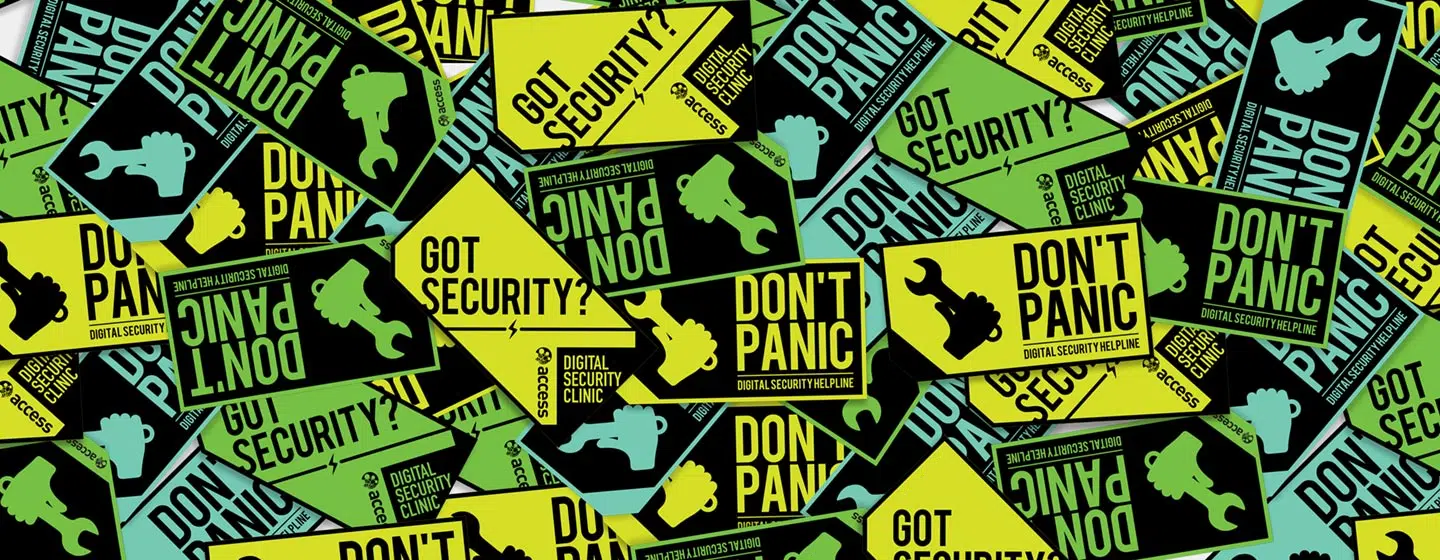PUBLISHED by ACCESSNOW, Translated by INSM
Amid a global decline in democracy and congruent rise in autocratic regimes, activists, journalists, and human rights defenders are facing mounting threats to their work defending human rights and freedoms. Now they’ve been dealt a further blow by the Trump administration’s recent actions to halt funding for foreign aid and digital rights initiatives, which will leave civil society increasingly under-resourced and exposed to digital attacks. This post explores why even the digital security ecosystem that supports human rights defenders is now at risk, and how we can regroup and rekindle the ingenuity needed to overcome this existential challenge.
How the funding cuts open the door to attacks on civil society
The U.S. Department of State recently confirmed it aims to effectively dissolve the United States Agency for International Development (USAID). Among many other things, USAID funds have helped to keep the internet on during elections and humanitarian crises worldwide, enabled independent journalism to thrive in certain regions, and allowed many digital security help desks to assist at-risk communities. (It should be noted that Access Now has never received funding from the U.S. government for its programmatic activities.)
The Trump administration has also attempted to drastically downsize the U.S. Agency for Global Media, moving to defund initiatives like Radio Free Europe and Radio Free Asia, which support freedom of expression globally, and the Open Technology Fund (OTF), which helps millions of people evade censorship in places like China, Iran, Myanmar, and Russia — although legal challenges have led to the restoration of some funding for now. Most recently the administration has moved to slash funding for the U.S. agency tasked with cybersecurity.
The damage of these funding cuts to the human rights ecosystem is already widespread. Across the sector, organizations are not only losing the people whose expertise helps them prepare for digital attacks, but also the services and hardware they need to protect themselves and their work. This will make it easier for hostile governments or other bad actors to hack into or otherwise breach systems at organizations they dislike, gaining access to highly sensitive information they could leverage against human rights defenders and the communities they protect. Meanwhile, some digital security help desks that relied on U.S. funding to assist civil society are shutting down completely, while others are having to cut services and staff to survive, leaving civil society partners and peers without access to external expert support.
Ultimately, this undermines activists’ ability to organize and challenge people in power, journalists’ efforts to expose the truth, and whistleblowers’ work to document and expose human rights violations.
Stepping up to the challenge with solidarity and creativity
Civil society has always had limited resources for shielding itself from digital attacks, but with many NGOs relying on U.S. and European funding, the drastic U.S. funding cuts are accelerating a race to the bottom. At the time of writing, the governments of countries such as the United Kingdom, the Netherlands, and France have announced that they will cut international aid funding, partly to finance additional spending on defense. Meanwhile, several philanthropic foundations are deprioritizing human rights to focus on more urgent forms of humanitarian assistance.
It’s vital to remember that we cannot defend democracy and freedom without combating digital repression and protecting those who defend human rights. Here are some ideas to seize the moment:
First, we call on funders and supporters to step up. Governments and funding organizations must increase, and live up to, their commitments to supporting digital security. It’s important to stay flexible and adapt funding policies to better respond to civil society’s substantial and growing need for protection against repression, surveillance, and digital attacks, among other equally important support programs. Prioritizing support for human rights has a knock-on positive effect across all of society.
Second, we need to increase our flexibility and prioritize human rights. For the next few years, we are going to be in uncharted territory, politically and financially. In this context, let’s think outside the box to find new ways for channeling resources and supporting the sustainability of civil society’s work. This is especially necessary for organizations providing emergency assistance and life-saving services, which are crucial for ensuring human rights defenders, investigative journalists, and people working at nonprofits can access resources to safely continue their work defending democracy.
Third, for those of us working in the digital rights space, let’s build on our collective power and solidarity. Networks like the Computer Incident Response Center for Civil Society (CiviCERT) are crucial for sharing digital security knowledge and tools, and promoting mutual collaboration to ensure people in need can reach the organizations best placed to support them. It has also allowed new help desks and organizations to flourish and strengthen their ability to serve their own communities, in their own language, and with as few barriers as possible. As much as possible, we should preserve and build on the work done so far, continuing to connect our day-to-day work with the needs and ambitions of those we support.
Ultimately, we can only resist ongoing attacks on our fundamental human rights rights and freedoms by coming together and practicing what we preach. This is how we can ensure that the ecosystem of digital security support we provide to civil society is grounded in timeless values and rights-based principles that will endure through the current crisis.


